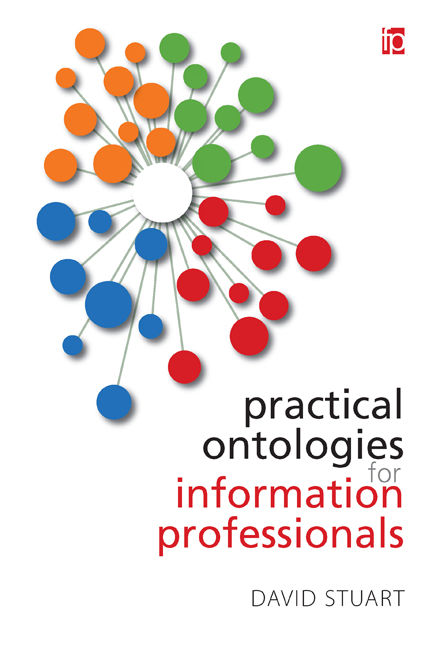Summary
Introduction
With a large number of ontologies already available, there will be many occasions when an ontology will already exist that fulfils some or all of an information professional's ontology requirements. The reuse of existing ontologies can not only help with the integration of data across different systems, but may, importantly, also reduce the repetition of work.
This chapter starts by considering the importance of reusing existing ontologies in more detail, before going on to explore some of the tools that are available for identifying existing ontologies, and some of the issues that may contribute to deciding whether or not to incorporate a particular ontology.
Reusing ontologies: application profiles and data models
The reuse of existing knowledge organization systems and processes is well established within the library community. Most libraries find it far more appropriate to adopt or extend an existing classification or cataloguing system than create a bespoke in-house system, with the advantages of a custom-made system far outweighed by the costs of maintaining the system and making use of other institutions’ data.
The principal reasons for reusing an existing ontology are the same as those for reusing other existing knowledge organization systems: cost-effectiveness and facilitating the interoperability of data. Although cost-effectiveness may be considered particularly pertinent to adoption of an ontology with a large number of instances, and interoperability particularly applicable to the adoption of existing element sets, both reasons apply (albeit not equally) to both parts of an ontology: the development of a logically consistent element set with clearly defined classes and properties that can accommodate all expected types of instance is not necessarily a simple process, whilst the adoption of the same instances across multiple platforms may facilitate information retrieval from multiple sites and sources. For the sake of simplicity, however, here we primarily consider cost-effectiveness in terms of ontologies with a large number of instances, and the advantage of adopting existing element sets for data interoperability.
The number of instances that may be created on average per hour will vary considerably in ontology development (as Hedden, 2010, notes for taxonomical terms), but the creation of a high-quality ontology can nonetheless be expected to be extremely labour-intensive, especially when talking about an extremely large ontology or broad subject area.
- Type
- Chapter
- Information
- Practical Ontologies for Information Professionals , pp. 79 - 96Publisher: FacetPrint publication year: 2016



